Oct 28, 2025 10:47 AM
In Memoriam: Jack DeJohnette, 1942–2025
Jack DeJohnette, a bold and resourceful drummer and NEA Jazz Master who forged a unique vocabulary on the kit over his…
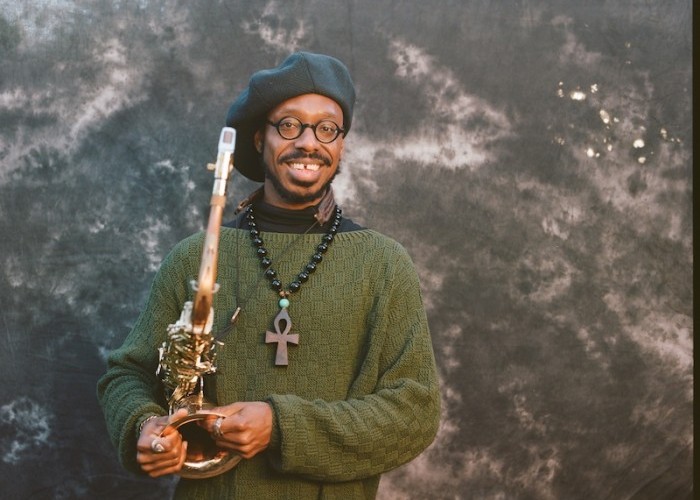
Shabaka Hutchings
(Photo: Hayley Louisa Brown)Shabaka Hutchings’ music makes fans dance and think. The dual ability to get hips swaying and synapses firing has made him one of the brightest stars in the jazz universe.
Based in London and named after an Egyptian pharaoh, the 37-year-old multi-reedist has made waves with three bands, all of which are signed to the Impulse record label: Shabaka And The Ancestors, The Comet Is Coming and Sons of Kemet.
In the 2020 DownBeat Critics Poll, Hutchings topped the category Rising Star Jazz Artist of the Year, and Shabaka And The Ancestors won the category Rising Star Jazz Group. Those accolades are the latest evidence that fans far beyond the U.K. are championing his artistic output.
His incendiary new album, Sons of Kemet’s Black To The Future, addresses the historical and contemporary impact of racism. The program is bookended with performances by musician/poet Joshua Idehen, whose fiery lyrics pull no punches on the opener, “Field Negus,” and the closer, “Black,” both of which are searing indictments of the brutality stemming from racial inequality.
Idehen, who has collaborated with Hutchings in various settings for many years, spoke with DownBeat via videoconference from Stockholm, where he has been living during the pandemic. “They’re both quite complementary,” he said, referring to the tracks to which he contributes on Black To The Future. “One comes from anger, and one comes from a certain weariness, like pleading, a defiance or resistance to any sort of stereotype, or any attempts to demean a Black person or Blackness. And then at the very end [of “Black”] — I think I had done about three takes — and on the last take, I yelled, “Leave us alone.”
Those are the words that conclude the album, echoing the pain heard in the voices of Black protesters in recent years.
Between those two tracks are songs with vocals from hip-hop artists, such as “Hustle,” featuring Kojey Radical, and “For The Culture,” featuring D Double E, as well as instrumental numbers that could fill the dance floor. Even the instrumental tracks supply potent commentary, thanks to titles such as “In Remembrance Of Those Fallen” and “Throughout The Madness, Stay Strong.”
On this, the fourth album by Sons of Kemet, Hutchings showcases his skills on a variety of wind instruments, including tenor saxophone, clarinet and flute, while his bandmates — tuba player Theon Cross and the drumming duo of Eddie Hick and Tom Skinner — establish deep, mesmerizing grooves, flecked with grit. Among the other guest contributors on the sessions, produced by Hutchings with Dilip Harris, are Moor Mother and Angel Bat Dawid, who supply vocals on “Pick Up Your Burning Cross.”
“For the most part, at the recording sessions for the album, it was just drums, tuba and saxophone,” Cross said via Zoom from his home in London. “And the amazing thing about that is it gives me so much space to move around. Often, I’ll play some sections in a low register. Then I might do the same thing in a higher register. And once I go into that higher register, I’m sharing it with Shabaka, who’s in the tenor register. So, it’s almost like alternating between octaves, just utilizing the space. I’m playing the bass line, but also playing riffs. Sometimes I’ll even do multiphonics, where I’ll sing and play at the same time.”
DownBeat caught up with Hutchings in London, where he has pursued numerous creative pursuits during the pandemic. He has been working on a solo album, listening to tracks for a forthcoming album by The Comet Is Coming, developing the manuscript for memoir and overseeing projects for Native Rebel Recordings, a label he launched in 2020.
The interview has been edited for length and clarity.
You posted on Twitter that you are working on your first book, to be titled Letters To A Young Musician. What was the impetus for that project?
It started with a letter that I had to write for the Casco Art Institute in the Netherlands, where they said, “You can write a letter and then we’ll send it to our followers.” And I wrote the letter to a hypothetical young musician. I really enjoyed the process. I’ve been thinking about writing an autobiography for a while, and writing to a young musician directly gave me a really great way to frame my thoughts, in terms of, how to position the lessons that I’ve learned being on the road for all of these years, and what I’ve learned, trying to find my own voice and music.
I assume you were thinking about the type of letters that you could have benefited from when you were a young musician.
Yeah, exactly. When I was coming up, it was a constant struggle just to get information about what it is that you’re supposed to be doing, especially in a context where you’re looking at the culture of jazz from a detached place. So, maybe if you are in America, where the music has been formed and you can meet the elders and you can see the way culturally it has [evolved], it might be a different situation. But for me, it was like trying to grasp every morsel of information I could about what it was to actually develop a language and a vision, and how to navigate this music.
You have played some important gigs in New York. When you travel there, do you find yourself thinking about the history of jazz that has come out of the city? Or are you thinking more about the current jazz scene that’s there today?
I’m thinking about how the history created the current scene. The ways that people operate, the attitudes that people have toward other musicians, toward going forward musically, those are things that you can feed on if you engage with them. That’s what I get from New York. There’s a certain type of hustle. There’s a certain type of forward thinking, a readiness to project themselves into the future.
When I was in college, I went to a workshop with [bassist] John Patitucci [around 2006]. He said that a lot of people come to New York to find their voice. Whereas, from what he’d seen, it’s better if you come to New York once you have a strong idea of who you are and what you want to play. Then you’re able to merge your voice to other voices. And that has stuck with me all these years.
Two of the guest collaborators on Black To The Future play tenor saxophone: Kebbi Williams and Steve Williamson. Why was it important for you to have them on the album? Let’s start with Mr. Williamson, who plays on the opening track. Steve is one of my heroes. I used to follow him around London. I tried to follow him to every gig that he did and just try to figure out his thinking. He’s a real deep thinker. He’s one of the first people that influenced me to start with an idea of what you want music to be like, and then adjust your practice and your physical actions on the instrument to the idea — as opposed to just practicing and hoping that an idea comes.
And what about Kebbi Williams? You brought him in for the track “Envision Yourself Levitating.”
When I first moved to London [in 2004], Kebbi, just by chance, was on a six-month break in London to see some family, I think. He just blew me away. I still remember one of the first solos I heard him play. It was at the Jazz Café, and he played so quietly that you could hear the scraping of the strings from the bass playing behind him. It was the most amazing, quiet playing that I’ve ever heard, and it was completely dynamic: It had a massive range. [At first,] the sound was tiny. That happened for maybe two or three tunes. And everyone was really focused and getting into it. And then at some point, he played the loudest solo I’ve ever heard. And it was so dramatic. … I had not thought about the journey of how you actually structure a set, in terms of drama. And as soon as he did that, I was like, “This is my guy. I will follow whatever he does for as long as I can.” And the same [was true] when he went back to America. I followed him on YouTube, and then contacted him.
I’ve been a legitimate fan of what he’s done for many years. There were years when I was not confident in what I was doing, the direction I was taking. I was kind of losing vision and direction. And I remember specifically that Kebbi was one of the players that in listening to him, I got an energy back and a spark and a love of music.
With a song like “Hustle,” there are Black fans who immediately will know exactly what you’re talking about. There is also an educational aspect of your music, perhaps opening some white listeners’ eyes to the scope of racism, and the impact of the long history of enslavement and imperialism. So, talk a bit about the idea of making music that resonates with a listener who gets it immediately, as well as the listener who maybe has their eyes opened a bit.
I really see the process of getting information as being circular: Everyone is on a position toward understanding, and everyone is at different points within it. So, for me, if someone is at a position where they understand where we’re coming from — from a cultural perspective — well, that’s great. But if they don’t, then at least this might be one point in their journey.
The aim of artists is to put information out there, and when people are ready, they can come to it — and hopefully further themselves. The music, contrary to popular belief, is not universal, but it has the ability to universalize; it can become universal. It’s a process. I would [hope that] people who don’t get it, [would] listen to the music and enjoy the music and that [could] be the start of a process of them maybe realizing there are things that they do not know. This is an idea of depth, rather than surface.
If you have a surface-level understanding of racism or the legacy that we’re referring to, then if you encounter the music and suspect there is something deeper [with] the rhetoric around the album, and the message behind the album, it gives you clues and hints of ways to explore. For me, that’s the best thing, in that it gives people a way of going forward.
In a previous interview with DownBeat, you talked about how when you get in the studio, you like to just let tape roll, and then later you go back and construct the final songs.
I decided that for every tune, the drums are going to start playing for a long, long period of time before even a bass line or the melody comes in. So, the drums might be playing for 10, 15, 20 minutes, just jamming with each other and actually developing a communication with each before the other elements are added.
It’s a technique I heard about, that both James Brown and Fela Kuti did. They would just let the songs go on and on and really get the vibe going before the tune itself. I think that’s essential in loosening up the group.
When that red light comes on [in the recording studio] and everyone says, “Go,” there’s an initial tension. Even if everyone is a complete professional and knows what they’re doing, there is necessarily going to be a tension. And that tension is the thing that I’m trying to alleviate in all my work, you know, how to get the least tension in the creative process. So, for me, if the red light goes on and if the drummers play for 15 minutes before even the bass line comes in, by the time the bass line does come in, they’re really intertwined with each other and deep in the groove.
And by the time I come in, I understand what the groove is. Because even though I write the music, what the music is in my head is going to be a different thing to what happens when other human beings are interpreting it. So, the big challenge is, how do I, as quickly as possible, align my expectations with the reality happening in the moment?
Talk a bit about your relationship to classical music and the piece that you performed at the London Jazz Festival in November.
It’s Copland’s Clarinet Concerto. It was written for Benny Goodman. I love the piece, but I had to really get my clarinet chops up to shape. It really brought my technical ability up, more than I could ever imagine. That’s the reason I decided to study classical clarinet [at the Guildhall School of Music & Drama]. I didn’t necessarily want to be an orchestral musician, but I wanted to go through the same process of study and training that any clarinetist would have. I didn’t want there to be a differentiation between the training that I got studying jazz and the training that a classical musician would get.
In practicing for [the performance of the Clarinet Concerto], I had to re-energize that part of my brain. Classical music has influenced me in an asymmetrical way that a lot of people don’t understand. When you’re playing classical music at a high level, what you’re doing is allowing yourself to be a medium from which the intentions or the emotions of another composer can come through you. You’re a vessel. [For example,] you’ve got a program and you’re playing a Stravinsky piece, and then you’re playing maybe a piece of Brahms’ and then you might play a modern piece by Morton Feldman.
You’ve got to get into the mindset of — and the intentions of — each of those composers, who are operating in three very distinct time periods. To do that, you’ve got to just step back from the music as an individual, and allow yourself to be prostrate before the intention of the greater music. And that’s what I try to do with my jazz music. I’m not trying to come to the music with a sense of who I am or what I can do. I’m trying to come to the music and say, “I will serve the music as truly as possible.”
During the pandemic, have you been making a lot of phone calls and doing a lot of Zoom chats with musicians and friends?
No, I’m a social person when I’m in the presence of people, but then as soon as I get cut off, I am a hermit. I bury myself away, and I do my stuff. I’ve not talked to many people, actually, for a long time, you know? But I like that. I grew up an only child, with a single mother, so I’m used to just being by myself and getting on with what I need to do.
I want to get your perspective on something that has been a big deal here in the States: the poet Amanda Gorman reciting “The Hill We Climb” at the inauguration for Joe Biden. I was just wondering what it was like for people in the U.K. to see that.
I heard about the poem but I [didn’t see the inauguration]. About a year ago, I deleted everyone that I follow on social media, so I don’t follow anyone. People share stuff that’s cool that I don’t get. I use social media for posting outwards, but I don’t get anything back inwards. So, there’s some elements of popular culture that I completely miss out on.
Why did you decide to disconnect from social media in that way?
Many reasons. I can start with the fact that I got to a stage where I was using social media as a way of alleviating boredom. And actually, boredom is necessary for deciding what to do next. So, not knowing what to do and actually sitting there and going, “I am bored. I do not know what I’m doing next,” that means I start thinking about what I actually do want to do.
Next, I don’t want to know what everyone is thinking. Basically, I just can’t handle it. I know everyone has thoughts about things, but I would rather encounter those thoughts in the context of real life, rather than seeing what people download out of their brains directly onto the screen. And I’ve just been trying to be more holistic about my mental well-being. It’s easy to become addicted to these formats if you’re not careful — especially if you are a performer.
I would rather just do my artistic processes and then talk to people in real life. And then, if I want to access someone on social media, I go towards them — as opposed to having people pushed onto me. DB
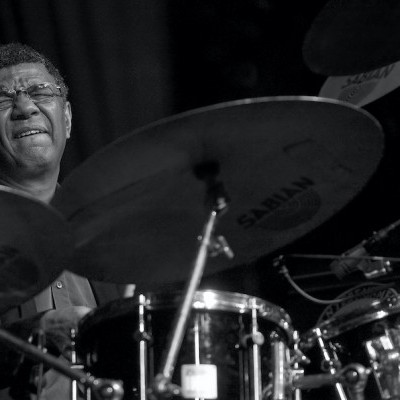
Jack DeJohnette boasted a musical resume that was as long as it was fearsome.
Oct 28, 2025 10:47 AM
Jack DeJohnette, a bold and resourceful drummer and NEA Jazz Master who forged a unique vocabulary on the kit over his…
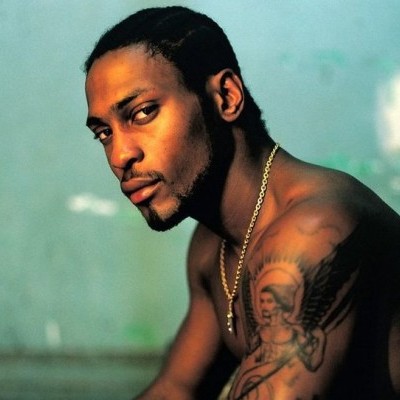
D’Angelo achieved commercial and critical success experimenting with a fusion of jazz, funk, soul, R&B and hip-hop.
Oct 14, 2025 1:47 PM
D’Angelo, a Grammy-winning R&B and neo-soul singer, guitarist and pianist who exerted a profound influence on 21st…
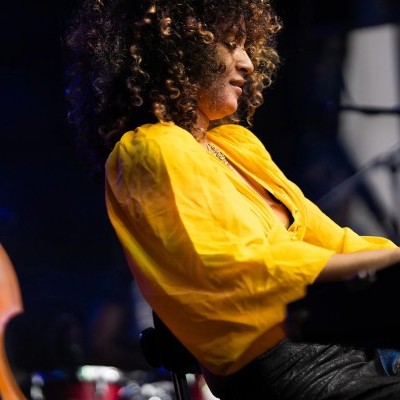
Kandace Springs channeled Shirley Horn’s deliberate phrasing and sublime self-accompaniment during her set at this year’s Pittsburgh International Jazz Festival.
Sep 30, 2025 12:28 PM
Janis Burley, the Pittsburgh International Jazz Festival’s founder and artistic director, did not, as might be…
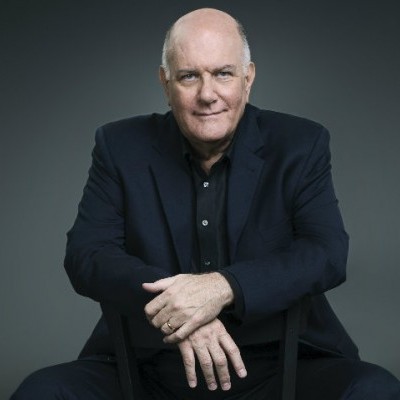
Jim McNeely’s singular body of work had a profound and lasting influence on many of today’s top jazz composers in the U.S. and in Europe.
Oct 7, 2025 3:40 PM
Pianist Jim McNeely, one of the most distinguished large ensemble jazz composers of his generation, died Sept. 26 at…
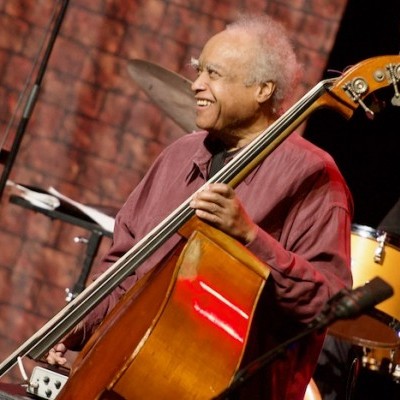
Drummond was cherished by generations of mainstream jazz listeners and bandleaders for his authoritative tonal presence, a defining quality of his style most apparent when he played his instrument unamplified.
Nov 4, 2025 11:39 AM
Ray Drummond, a first-call bassist who appeared on hundreds of albums as a sideman for some of the top names in jazz…